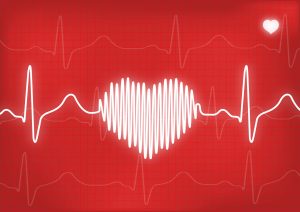
A heart attack (myocardial infarction) is when the heart does not receive enough oxygenated blood, so parts of the heart muscle get damaged or die. The most common cause of this is arterial blockage due to a buildup of plaque in the arteries, leading to coronary heart disease.
Advertisement
When a part of the plaque ruptures inside of the artery, a blood clot forms. As it grows, it creates a narrower area for blood to pass. As this blood clot continues to grow, the passageway may get completely blocked as a result.
With immediate treatment this issue can be resolved, but without treatment within an adequate time period, it can result in a heart attack, increasing one’s risk of health complications, including death.
Many factors that contribute to a heart attack can be prevented, so it’s important to understand its causes in order to lower your risk.
Causes of heart attack
Coronary heart disease (CHD): CHD is the leading cause of heart attacks. It occurs when coronary arteries are clogged and thus prevent blood flow from reaching the heart. Risk factors for CHD include smoking, unhealthy diet, high blood pressure, diabetes, extra weight or obesity, alcohol use, lack of exercise, older age, a family history of CHD, and air pollution. Many of these risk factors are preventable and modifiable, meaning you can control your chances of developing CHD and thus reduce your risk of a heart attack.
Drug misuse: Illegal drugs can cause arteries to narrow, which restricts blood flow to the heart, thus contributing to a heart attack. This type of heart attack cause is more common among younger people.
Lack of oxygen: Decreased oxygen levels in the blood mean there is less oxygenated blood for the heart to receive. This causes heart damage and triggers a heart attack.
Advertisement
Aneurysm: An aneurysm is when the blood vessels become weak, and as a result cannot withstand blood pressure and rupture.
Stress: Although stress may not cause CHD or heart attacks, it can increase your risk for either condition. The best thing you can do is reduce stress as much as possible. Stress can increase blood pressure, and high blood pressure is a risk factor for a heart attack. Finding effective methods of reducing stress can help you reduce your risk factors and keep your heart healthy.
Related: Mild heart attack: Symptoms, treatment, and precautions
